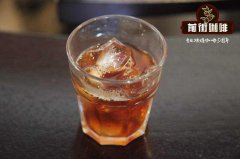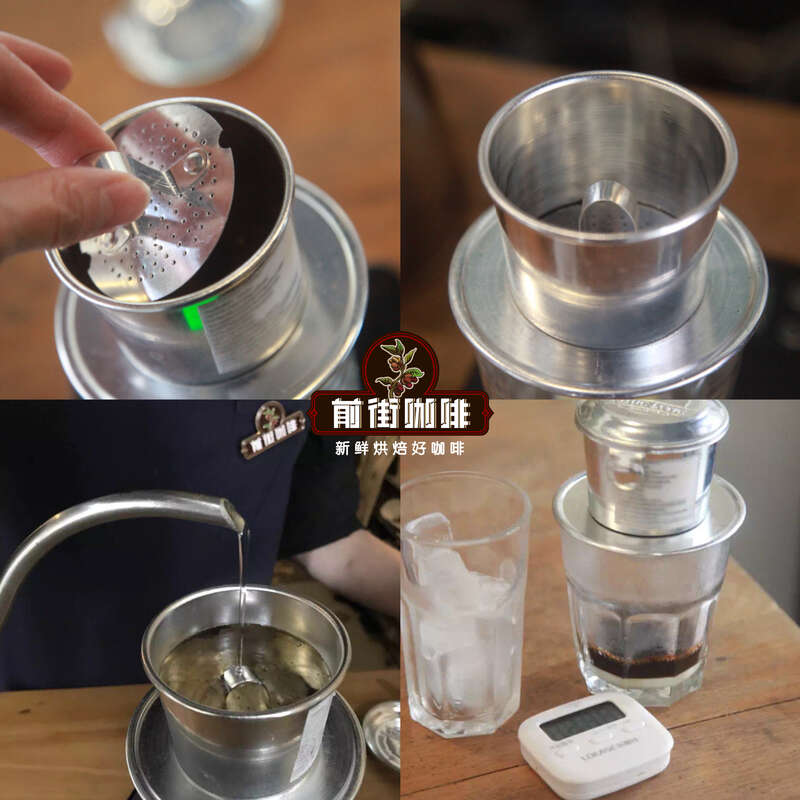Amber Manor introduces how much is authentic Blue Mountain Coffee and what is Blue Mountain Coffee?

Professional coffee knowledge exchange more coffee bean information please follow the coffee workshop (Wechat official account cafe_style)
History and status of Jamaican Coffee
The history of Jamaica and coffee can be traced back to the early 18th century.
In 1717, King Louis XV of France ordered coffee to be grown in Jamaica and Governor Nicholas in the mid-twentieth century. Nicholas Lawes imported Arabica seeds from Martinique and began to plant them in St. Andrew.
Jamaica is an island country located in the Caribbean Sea, east of the Jamaica Strait, facing Haiti, about 145 km north of Cuba, the third largest island in the Caribbean.
Jamaica has a tropical rain forest climate, with the rainy season from May to June and September to November every year, with the most showers in January and May, rich precipitation, local fertile volcanic soil and suitable temperature, which has created the mild and clean taste of Jamaican Blue Mountain Coffee. As well as rich, lasting flavor, but also laid a solid foundation for the reputation and quality of the Jamaican Blue Mountains.
There are three varieties of Jamaican coffee: Jamaican Blue Mountain Coffee (Jamaica Blue Mountain Coffee), Alpine Coffee (Jamaica High Mountain Supreme Coffee Beans) and Jamaican Coffee (Jamaica Prime Coffee Beans).
According to the standards of the Jamaica Coffee Authority (CIB), the coffee beans produced from the hillside to the top of the Jamaica Blue Mountains above 2200 feet can only be called Jamaica Blue Mountains. Then the beans are screened according to the shape and size of the beans, which are divided into NO.1, NO.2, NO.3 three grades, plus a PB (Peaberry, that is, round beans).
Amber Manor Blue Mountain, Jamaica is a unique brand, founded in 1994, located in providing boutique Jamaican coffee beans, with the highest goal of maintaining good quality and freshness. In order to produce the best Jamaican No.1 coffee, large raw beans were screened with a sieve of 17, 18 and 19 mesh, which ensured that each cup had the best aroma and taste.
LOGO of Jamaica Coffee Industry Bureau registers and certifies all the merchants in the whole industry chain of producing, selling and roasting of Jamaican Blue Mountain Coffee.
The JAMAICA BLUE MOUNTAIN trademark is officially registered by the Jamaica Coffee Authority (CIB), which is marked on all certified raw and cooked beans of Jamaican Blue Mountain Coffee.
With the globalization of the reputation of Jamaican Blue Mountain Coffee and the global introduction of Jamaican Blue Mountain Coffee cultivation, there are many fake Blue Mountain flavor coffee on the market, which has seriously affected the excellent reputation of authentic Blue Mountain Coffee. In recent years, the Jamaican government has strongly advocated the export of Blue Mountain coffee in the country in roasting and original packaging, rather than in the form of raw beans, in order to avoid the impact of counterfeit Blue Mountain flavor coffee. The importance of this measure is that the Jamaican Coffee Bureau can monitor every link of the Blue Mountain Coffee export to ensure the purity and high quality of Blue Mountain Coffee.
Important Notice :
前街咖啡 FrontStreet Coffee has moved to new addredd:
FrontStreet Coffee Address: 315,Donghua East Road,GuangZhou
Tel:020 38364473
- Prev

Cuban coffee beans Cuban crystal mountain coffee price how to drink Cuban coffee
For more information on coffee beans, please pay attention to Coffee Workshop (Wechat official account cafe_style) Crystal Mountain Coffee of Cuba ranks among the top in the world. Crystal Mountain is adjacent to the Blue Mountain Mountains of Jamaica and has similar climatic conditions, which is comparable to the Blue Mountain Coffee of Jamaica. Cubita adheres to the principle of perfect coffee, only making individual coffee and picking coffee beans by hand.
- Next

Robusta coffee beans and Arabica flavor difference which robusta coffee beans are the best?
Professional coffee knowledge exchange more coffee bean information Please follow the coffee workshop (Wechat official account cafe_style) Coffee bean ingredients include caffeine, tannin, fat, protein, sugar (carbohydrates), minerals and so on. The sugar in coffee beans brings sweetness, tannins and fatty acids bring sour taste, volatile fat brings aroma, and caffeine bitterness. The coffee is big
Related
- Beginners will see the "Coffee pull flower" guide!
- What is the difference between ice blog purified milk and ordinary milk coffee?
- Why is the Philippines the largest producer of crops in Liberia?
- For coffee extraction, should the fine powder be retained?
- How does extracted espresso fill pressed powder? How much strength does it take to press the powder?
- How to make jasmine cold extract coffee? Is the jasmine + latte good?
- Will this little toy really make the coffee taste better? How does Lily Drip affect coffee extraction?
- Will the action of slapping the filter cup also affect coffee extraction?
- What's the difference between powder-to-water ratio and powder-to-liquid ratio?
- What is the Ethiopian local species? What does it have to do with Heirloom native species?

